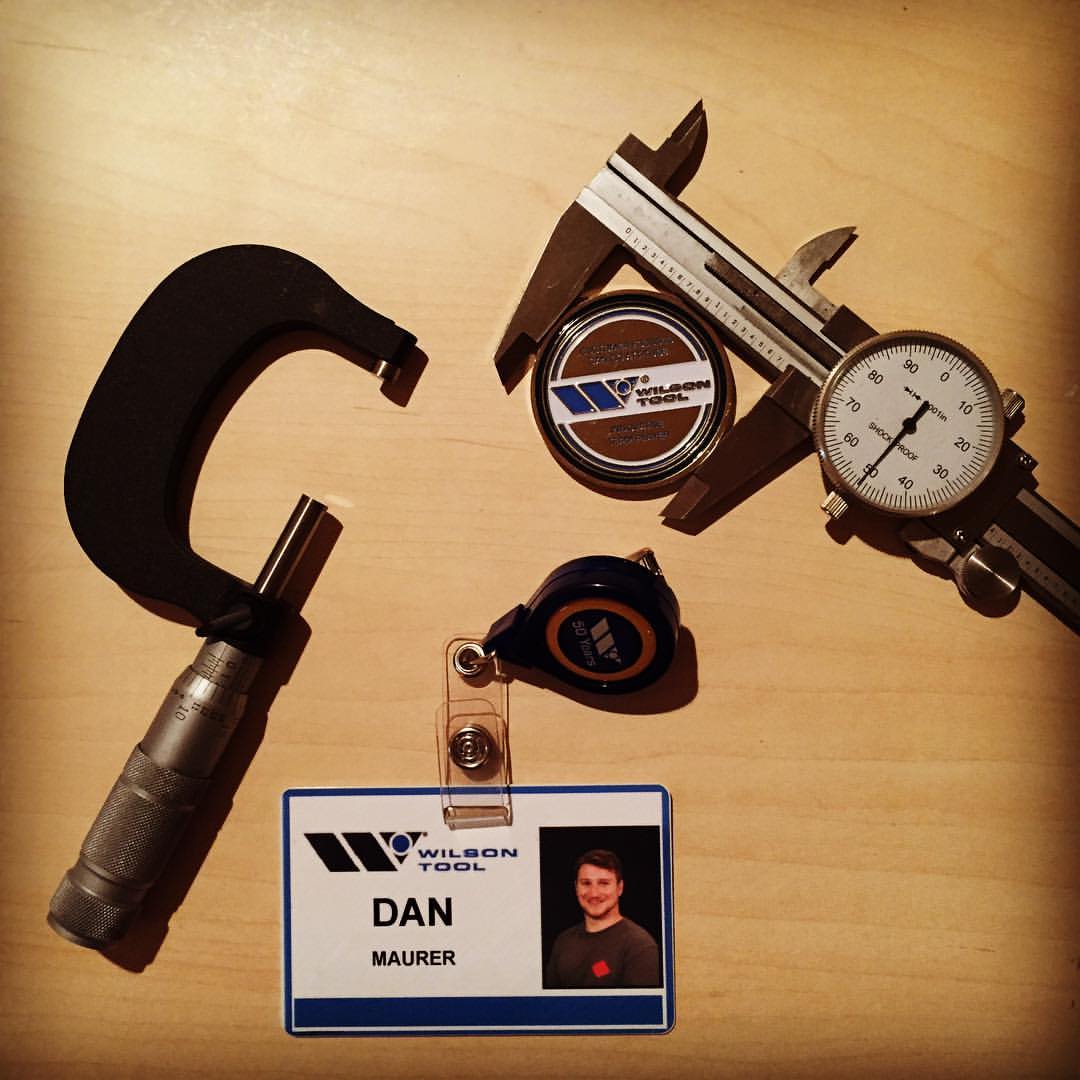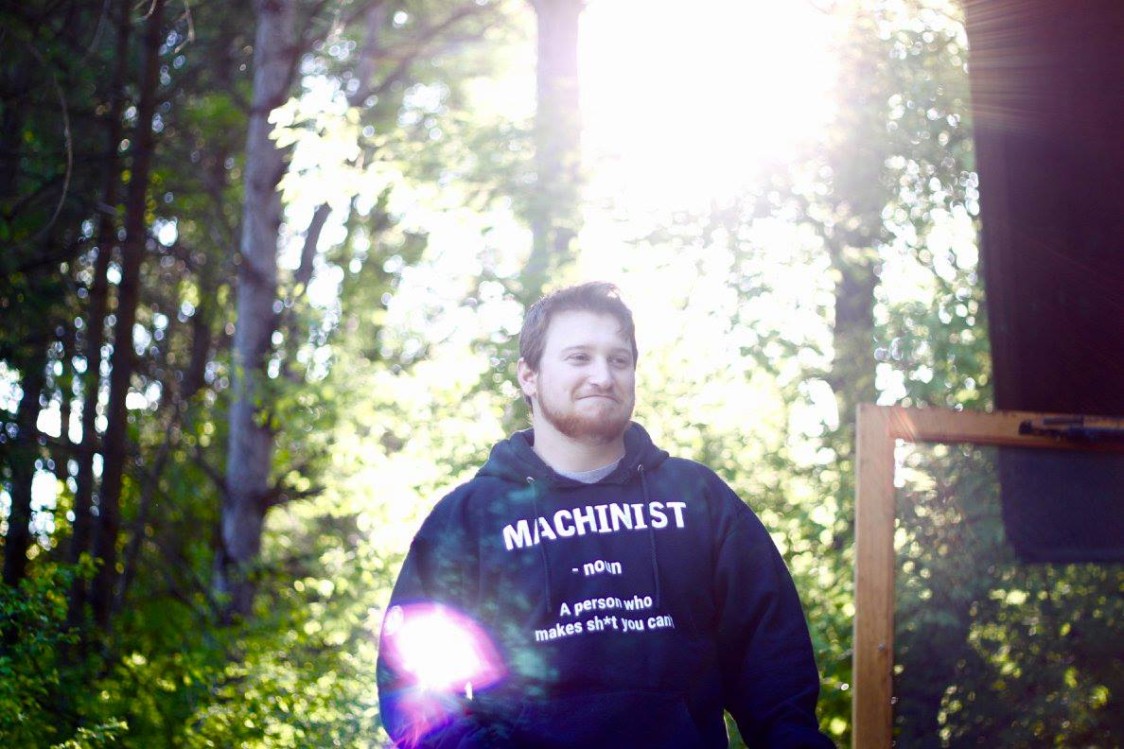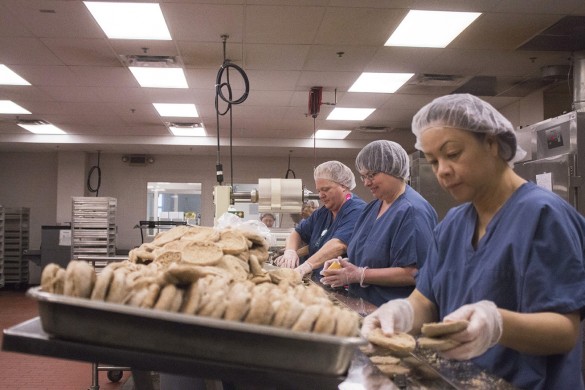Labor and building trades aren’t being shared with students as viable career options, leaving industries with a lack of workers and students with a lack of knowledge on these opportunities
Words by Kayla Parker
Photos by Kayla Parker, Dan Maurer and Hudson Webber (in order presented)
Dan Maurer is in his early twenties and looking to buy his own house. Jeff Forrest just took a vacation to Mexico this winter. Patrick Wells’ industry boasts jobs that make six figure salaries. And they’re all in the building trades, and they’re using their hands and specialized knowledge to build a career in these industries many people overlook.
There’s a misconception about so-called “blue collar” jobs. The building trades, in particular, are either given a bad rap or not talked about in schools. Most high schools are focused on college preparation. Entering the workforce without a four-year degree, or even the option of attending a trade school, is rarely mentioned.
“I went through my daughter’s orientation not too long ago — she goes to Carlisle (High School) — and I’m sitting there listening to the counselor talk about all the things,” said Patrick Wells, the business manager for the International Brotherhood of Electrical Workers (IBEW) Local 347 in Des Moines, Iowa. At his daughter’s school, “They kept saying college this and college that, and they got to go to college, and I sat there the whole time and not once did they mention building trades.”
Wells is working to change that by visiting schools to help improve their construction career training by informing students about other options.
“It is a valuable opportunity for every student,” he said. “You can earn over $100,000 a year doing construction work, and people just don’t fathom that. It’s not fair to their students to not tell them that”
It’s not really about misconceptions of the electrical trade, Wells said. It’s simply a lack of knowledge. People aren’t being told about options other than higher education. According to the National Center for Education Statistics, only 32.7 percent of persons age 25 or older had achieved a Bachelor’s degree or higher in 2015. That means less than a third of the population is being pushed in a direction they won’t be going. And while they’re being pushed in this direction, they’re not hearing the other options that are available for them that can lead to really successful lives and careers.
After high school, Wells went on to college for a little while, but quickly realized it wasn’t for him.
“I knew my dad was an electrician, and I wasn’t at that time ready to commit to that, but then once I did, I realized this is it,” Wells said. “This is where I need to be. There is just no comparison.” From then on, he spent 20 years in the field, wiring buildings like the Science Center of Iowa and Wells Fargo Arena.
For Wells, the advantages are clear.
“Number one: wages and benefits. As soon as you walked in the door, there it is, right there — a clear path on where your career is going to take you,” Wells said. “For every single hour I work, this much is going into my wage, this much is going into my pension, this much is going into my healthcare, and it’s just unbeatable.”
A person just getting out of college starts out at the bottom of the ladder, trying to find their way, and usually in debt. In contrast, in the trades, there’s healthcare and pension benefits that set an individual up for retirement from the first day they’re done with their education.
“I’m not against college by any means because it’s great for some people, but we don’t all need to be there, ‘cause this is an untapped resource. A lot of people don’t realize how successful you can be in the building trades,” Wells said.
Wells isn’t the only one to notice the lack of information being shared to younger generations about building trades.
Jeff Forrest is currently a business agent for a local bricklayers union in Des Moines. For 35 years, “I worked on anything that had to do with bricks, blocks or stones,” he said. He’s been in the union since 1976.
He, too, notices the way that schools handle further education. “They think every kid should go to college. Well, college isn’t for everybody.”
Pension plans and insurance are readily provided through Forrest’s line of work. “A lot of young kids don’t know the value of that, but — guess what — an old guy sure does.
“Did I go to college? No, but I can build a building,” Forrest said. “There’s career opportunities in the construction field, and we, right now, are begging for people. Every trade. We can’t figure out why we can’t sell our industry to some of these kids because you can make a living, you can pay your bills, you can go on vacation, you can have a pretty damn good life.”
However, the benefits aren’t what got him into the building trades. He said it’s really a “family curse.” Forrest’s dad was a bricklayer, and all of his dad’s brothers were too. He figures if they had been bankers, maybe he’d have been a banker, too. At about 10 years old, Forrest started tagging along and helping out his dad. “I learned about the construction industry at a pretty young age.”
Watching the hard work his dad put in, he thought to himself, “There’s no way I’m going to do this.” Fast forward about half a century, and, “I’ve been doing it for 41 years now,” he said. Everything he has is paid for, he’s built a good life and he is proud of the work he’s done.
Additionally, he didn’t want to be stuck inside a building all day. He’d rather be making them instead.
“I do not want to work in an office. I do not want to wear a suit to work,” Forrest said. “I’m a regular guy. I like drinking a few beers on the weekend. Ego’s never been anything that bothered me. But don’t look down on me, because especially a lot of guys who’ve [looked down on me], I was making twice as much money.”
Just as college isn’t for everybody, neither is construction. He has three boys who went to college because, Forrest said, “construction wasn’t for them.”
“It’s labor intensive, so you’re going to have to work your ass off,” Forrest said. “If you don’t like getting muddy or dirty, or cold or hot, it’s not for you. If you don’t like heights, it’s not for you.”
In contrast to the men who have been in the industry for quite a while, Dan Maurer is in his early twenties and starting off his career as a machinist at Wilson Tool International in White Bear Lake, Minnesota.

Proud to start his new job, Maurer shows off a few tools of the trade.
Maurer went to University of Wisconsin-Stout for one year for a technical education degree. He wasn’t sure about earning a four-year degree, but he thought he’d try it out.
It wasn’t what he was looking for in a career. Maurer took some time off and looked around to see what opportunities were out there. He ended up at St. Paul Technical College where they have a CNC machining program, and fell into a career he was passionate about. At school, it was more of a shop environment than a classroom, which matched his learning style.
Contrary to many parents of millennials, Maurer’s parents weren’t at all worried about his decision to change courses.
“A lot of people would have thought, ‘my son’s not going to a four-year school, I’m worried about his future,’” Maurer said. “But, in fact, neither of my parents went to a four-year school. They both went to a two-year technical trade school.” Maurer’s dad studied carpentry, and his mom became an X-ray technician, and both excelled in their fields without an undergraduate degree.
Maurer emphasized that there are more routes to success than a high school guidance counselor will often point out. “Right now, the trades have one of the biggest deficits of workers that there’s ever been,” he said.
“The job security is phenomenal, because the companies know that they’re going to be losing that labor, so they really do a great job of taking care of their employees,” Maurer said. “Wages have gone up extensively over the past 15 years because they’re trying to bring more people to their companies and compete with other companies for the limited labor in the industry.”
Because of the security in jobs and company loyalty, “There’s absolutely ways to make really good money in the trades, and the companies themselves want to help you do it,” Maurer said.
In the past, a liberal arts grad scoffed at Maurer for working a blue-collar job. However, he doesn’t let it bother him. “I have no problem being working class. I have no problem working with my hands,” he said. “Trust me, I would go insane if I sat at a desk every day. I love walking around, working with machinery, doing things with my hands and creating physical things, it’s something I’ve enjoyed since I was a child.”
Wells views “blue collar” broadly. “I’ve always been blue collar,” he said. “The separation between it, too, is gray at best. It doesn’t matter if you’re digging in a ditch or if you’re sitting in a cubicle, you are the same. You are labor.”
Even if you’re not in the trade industries, he sees hard work as hard work — wherever that may be. “I don’t have a perspective that separates blue or white collar so much, because like I said, for me it’s more about 99-percenter versus 1-percenter issue,” he said. In his eyes, when an individual works for their living and has someone to sign their checks, that’s blue collar. In the end, it’s about the willingness and ability to work hard.

Dan Maurer’s sweatshirt reads: Machinist – noun. A person who makes sh*t you can’t.











